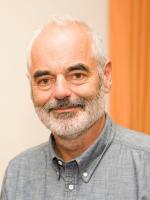
Publications
David Spiegelhalter’s contribution to the Discussion of ‘Some statistical aspects of the COVID-19 response’ by Wood et al.
– Journal of the Royal Statistical Society Series A (Statistics in Society)
(2025)
189,
107
(doi: 10.1093/jrsssa/qnaf105)
Reading the signals: Developing a maternity outcome signal system (MOSS) to improve critical outcomes at term
– BJOG-AN INTERNATIONAL JOURNAL OF OBSTETRICS AND GYNAECOLOGY
(2025)
132,
109
Why probability probably doesn't exist (but it is useful to act like it does).
– Nature
(2024)
636,
560
(doi: 10.1038/d41586-024-04096-5)
How to maintain trustworthiness when doctors act as policy advocates.
– The BMJ
(2024)
386,
e079929
(doi: 10.1136/bmj-2024-079929)
Modelling hepatitis C infection acquired from blood transfusions in the UK between 1970 and 1991 for the Infected Blood Inquiry.
– Royal Society Open Science
(2024)
11,
231722
(doi: 10.1098/rsos.231722)
Modelling hepatitis C infection acquired from blood transfusions in the UK between 1970 and 1991 for the Infected Blood Inquiry
(2023)
(doi: 10.1101/2023.11.03.23298029)
The effects of communicating scientific uncertainty on trust and decision making in a public health context
– Judgment and Decision Making
(2023)
17,
849
(doi: 10.1017/s1930297500008962)
Discussion of Presidential Address: Statistics in Times of Increasing Uncertainty by Sylvia Richardson
– Journal of the Royal Statistical Society Series A: Statistics in Society
(2022)
185,
1499
(doi: 10.1111/rssa.12970)
The effects of quality of evidence communication on perception of public health information about COVID-19: two randomised controlled trials
– PLoS One
(2021)
16,
e0259048
(doi: 10.1371/journal.pone.0259048)
- 1 of 44
